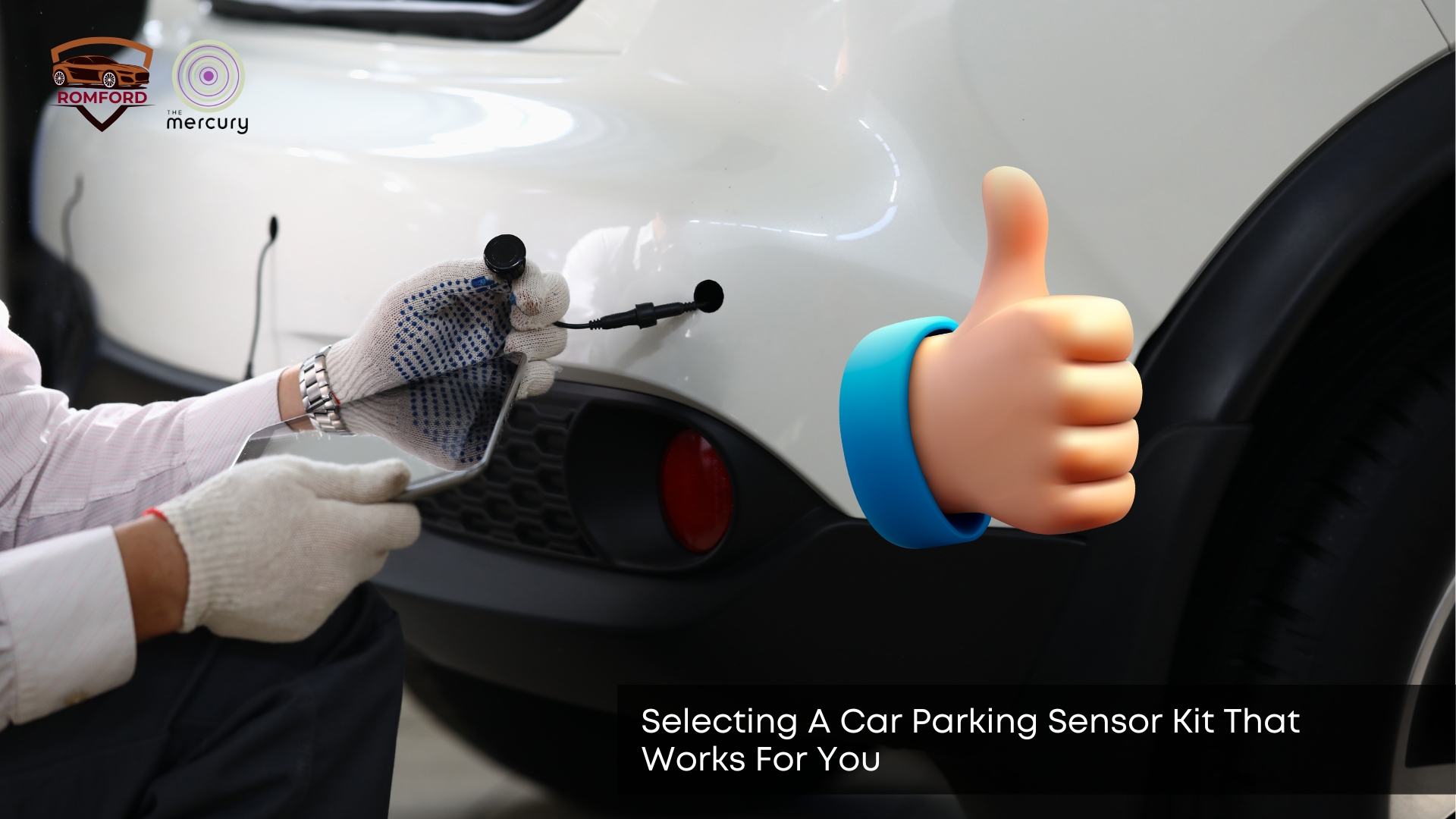Choosing the right car parking sensor kit can help you avoid costly bumps and make daily driving easier. These clever devices use sound, visuals, or both to alert you when you’re getting too close to objects. Whether you’re parking in tight spots or reversing out of a driveway, sensors can make a big difference; however, not all sensor kits function in the same manner. Knowing what to look for will help you make a smart choice before you buy.
What Does a Car Parking Sensor Kit Do?
A car parking sensor kit helps drivers detect objects behind or in front of their vehicle when parking. It uses ultrasonic or electromagnetic sensors to measure distance and warn you with beeps or a screen. These alerts help reduce the risk of hitting walls, bollards, or even pedestrians. Some kits are built into the bumper, while others can be added later. The real question is which type suits your driving habits best.
Which Type of Parking Sensor Is Best for Your Needs?
The best parking sensor type depends on your daily parking challenges and the type of car you drive. Ultrasonic sensors are commonly used for detecting solid objects, while electromagnetic ones offer smoother detection without the need for drilling. Rear-only kits are suitable for most people, but full front and rear sets provide better coverage. If you park in tight or busy spaces, a more advanced system may be worth it. Once you select a type, consider how you want the alerts to be delivered.
Do You Need a Visual Display, Sound Alert, or Both?
Some drivers prefer simple beeping sounds, while others want a screen to show exact distances. A sound alert is often enough for many, but a visual display can provide you with extra confidence. Many modern sensor kits now offer both features together. Some systems also come with voice instructions or links to mobile apps. After deciding how you want alerts, it’s wise to think about how easy the kit is to install.
How Important Is Installation Difficulty When Making a Choice?
Installation is a crucial factor, as some kits are plug-and-play, while others require professional fitting. If you’re not confident with tools or wiring, choose a kit that’s easy to mount without drilling. Wireless systems are generally easier and faster to install than wired ones. Some kits require bumper removal or have sensors that need to be painted to match your car. Still, before fitting anything, you’ll want to check if it suits your vehicle.
Will It Work With Your Vehicle Make and Model?
Not all sensor kits are made to fit every type of car. You’ll need to check whether the kit you want is compatible with your vehicle’s size, shape, and features. Larger vehicles may require additional sensors for improved range, while electric cars may necessitate specialised wiring. Some brands even offer kits specifically designed for popular car makes. Once you’ve ticked that box, take a closer look at performance features.
What Should You Expect from Sensor Accuracy and Range?
A good car parking sensor kit should detect objects accurately at both close and moderate distances. Most kits alert you from about 1.5 to 2.5 metres away and increase warning beeps as you get closer. Cheap sensors can produce false readings or fail to detect smaller objects. High-quality kits are more consistent and reliable in different conditions. But even good sensors can struggle if the weather is against you.
Are Wireless Kits More Convenient Than Wired Ones?
Yes, wireless kits are usually more convenient because they don’t require you to run cables through the vehicle. They’re quicker to install and ideal for DIY users. However, wired systems can be more reliable over time, especially in harsh weather. If you value ease over long-term maintenance, a wireless kit may be the best option. Regardless of your preference, consider how the system performs in real-world conditions.
How Well Do Sensors Handle Wet or Dirty Conditions?
The best sensor kits are designed to operate reliably in rain, mud, and snow without failing. Look for waterproof ratings and user reviews that mention outdoor use. Dirt and grime can affect accuracy, but some kits come with self-cleaning features or alerts to notify users when sensors are blocked. Regular cleaning helps too. Now that you know what affects performance, it’s good to know which brands offer the best reliability.
What Brands Are Known for Reliable Parking Sensor Kits?
Top brands like Valeo, Steelmate, Dolphin, and EchoMaster are trusted for quality and durability. These manufacturers have years of experience and offer a range of options to suit all budgets. Many also provide warranties and UK-based customer support. Buying from a known brand often means better build quality and clearer instructions. And when paired with multistorey car park safety tips in Romford, your whole parking setup becomes much safer.Of course, not everyone wants to spend the same amount on their sensor setup.
How Much Should You Spend on a Sensor Kit?
Basic sensor kits can start from £20, while high-end options with screens and voice features can cost over £100. If you only need simple alerts, a lower-priced kit may work fine. But if you value added features or use your car daily in tough parking areas, it’s worth investing more. Your budget choice should match your lifestyle, which brings us to the final decision. And if budget isn’t your only concern, there are Romford parking solutions for every driver worth exploring before you decide.
How to Choose a Kit That Fits Your Lifestyle
The best car parking sensor kit for you is one that strikes a balance between function, ease of use, and cost. Whether you value tech, want a quick install, or need something reliable in all weather, there’s a kit for that. Those parking in town centres may also benefit from knowing the best car parks in Romford for daily use.
Consider how often you park, where you drive, and what extra help would truly make a difference. Ultimately, the right sensor kit isn’t just about its features, but also how smoothly it integrates into your driving routine.


Leave a Reply